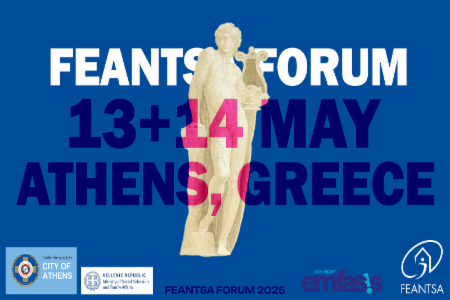European Child Guarantee to focus on children in vulnerable situations, including homeless children:
FEANTSA’s reaction to the proposal for a Council Recommendation establishing the European Child Guarantee
Read and download (PDF)
On 24 March, the European Commission published the proposal for a Council Recommendation establishing the European Child Guarantee. The proposal stems from the European Parliament’s years-long ambition to address child poverty more effectively in the EU, in particular to guarantee their right to access key services.
Children are disproportionately affected by poverty, social exclusion and potentially the effect of the COVID19 crisis. Child poverty rates tend to be higher than that of the total population. Across the EU the (pre-covid) rate of child poverty or social exclusion ranges from 11% to 36%, with the EU average at 22%.
The Commission’s proposal focuses on creating an enabling framework in every country for reducing child poverty, with special attention to children in need. It recommends that Member States ensure effective and free access to early childhood education and care, education and school-based activities and a healthy meal each school day, effective and free access to quality healthcare, effective access to sufficient and healthy nutrition, including through the EU school fruit, vegetables and milk scheme, and effective access to adequate housing.
The Child Guarantee proposal corresponds with the political target set earlier this month by the Action Plan of the European Pillar of Social Rights, which aims to reduce the number of children at risk of poverty or social exclusion by 5 million across the EU by 2030. It builds on earlier EU ambitions to achieve policy coherence and national coordinated actions, particularly the 2013 European Commission Recommendation on Investing in Children. The Child Guarantee complements the EU Strategy on the Rights of the Child, published the same day.
FEANTSA takeaways
FEANTSA welcomes the ambition to reduce child poverty in Europe and break the cycle of disadvantage. We particularly welcome that the Child Guarantee mentions homeless children or children experiencing severe housing deprivation as a priority group within the children in vulnerable situations whom Member States should support.
FEANTSA estimates there are approximately 700,000 people sleeping on the streets or in shelters on any given night in the European Union. This is an increase of approx. 70% over the last decade. There is an increasing number of families with children among the homeless population.1 Ensuring permanent housing and support services to children and their families is of vital importance for their health, safety and development.
Adequate housing is one of the six main areas of the Child Guarantee. The proposal for a Council Recommendation calls on Member States to take the interests of families with children in need better into account in the design and implementation of their housing policies. The draft Recommendation asks Member States to address energy poverty, which is a problem affecting an increasing number of families. It also encourages Member Stats to assess and revise their social housing policies and housing benefit systems to better cater for the needs of vulnerable families. The call to prioritise children in need and their families in the provision of social housing is particularly helpful.
We regret however that the draft Recommendation endorses the provision of emergency shelters for children, be it for short periods of time. We know from research, however, that even short stays in homeless shelters can have a devastating impact on children and their inclusion in society. Similarly to institutional care, shelters should therefore be considered as a very last resort for children and their families experiencing homelessness. Better options would be emergency temporary housing or, even better, permanent housing with the possibility of support services. FEANTSA calls for EU funding available for the implementation of the European Child Guarantee, only to be used for proper emergency or long-term housing solutions.
To effectively reduce and prevent child poverty, integrated approaches and cross-sectoral work are required. The nomination of national Child Guarantee Coordinators and the need to submit and follow through on national Child Guarantee Actions Plans up to 2030 will improve the impact and implementation of the measures. The hope is that the initiative will trigger national, regional and local accountability and integrated working. It is another opportunity to address homelessness and housing exclusion through an intergenerational and coherent approach.
To support its realisation the proposal urges the use of EU funding, including the structural funds, InvestEU, and other resources to complement national budgets. Under the upcoming financial framework all Member States will have to invest adequate European Social Fund Plus resources for the implementation of the Child Guarantee, and 11 countries will have to dedicate at least 5% of them. 2021 is therefore the ideal time to programme EU and national resources for housing solutions for children and families in vulnerable situations.


.png)



